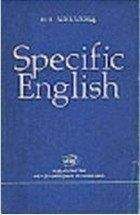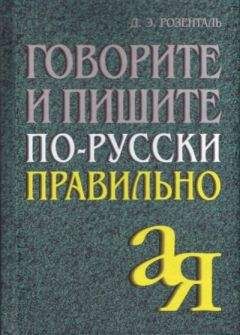11. А. Переведите следующие предложения с конструкцией there is.
1. There is milk in the jug. 2. There was a menace in his voice. 3. There was a storm coming. 4. There seemed to be no end to our troubles. 5. There entered John and Lucie holding each other’s hands. 6. There isn’t even the satisfaction of raising a row about it. 7. There was an unspeakable beauty about mornings, the great sun from the sea. 8. There is the fear that our civilisation may be completely destroyed by the new weapons of destruction that scientists have placed in the hands of their rulers. 9. I don’t want to frighten you, but there’s always the possibility that you will die, or be killed in an accident, while you are still young. 10. It always seemed to them that there hung about the house faintly the acrid smell of opium. 11. After all, there’s no harm in trying. 12. Then finally she burst into laughter that made the other two want to go on and on for ever. And there were the three of them, shaking, watery-eyed, helpless. 13. Below and beyond there stretched toward the invisible sea the flat pale green expanse of Romney Marsh. 14. There had been mornings when he came in fearing to find Fanny dead. 15. And there was Fanny’s poor old dressing-gown still hanging on the door. 16. There was not much to find. There had not been much to find in the desk either. Poor Fanny had had no secrets. She had been a woman without mystery. There had been no darkness in her. 17. The lines of roses were out of sight now below the hill, and between the towering beeches there was only visible the blue and white swiftly moving sky. 18. There was Tory fury in the House of Commons over the decision.
Б. Переведите на английский язык, используя конструкцию there is.
1. Над дверью магазина была вывеска. 2. На этих равнинах очень солнечно (sunshine) круглый год. 3. В доме была большая веранда. 4. Дул холодный ветер. 5. В комнате стояла тишина (silence). 6. В ее голосе была приятная хрипотца (huskiness). 7. И как раз в этот момент появился Джеймс. 8. Казалось, конца не будет ее жалобам. 9. В комнату вбежали дети, весело смеясь. 10. В то время не было никакой возможности получить работу. 11. Кажется, нет причины откладывать решение этого вопроса. 12. Оставалось только посадить (to put) Мэри в экипаж.
В. Переведите следующие предложения, содержащие there is + отрицание + герундий.
1. There’s no telling when I’ll be out. 2. There was no denying that Constance had a lovely figure. 3. When he saw that there was no persuading him to stay, he ceased to urge it. 4. There was never any telling when he would turn up. 5. There was no evading his impudence. 6. Finally he decided there was no knowing whether she believed the story or not. 7. Mildred felt her tears coming now. There was no resisting them. 8. To him there is no escaping the fact that man is an evil animal.
Г. Переведите на английский язык, используя упражнение В в качестве образца.
1. Трудно сказать, когда он вернется. 2. Нельзя отрицать, что она права. 3. Нельзя было предотвратить (to avert) опасность. 4. Остановить его было невозможно. 5. Мать была уверена, что ее Том не виноват, и разубедить (to dissuade) ее было невозможно. 6. Мир переменился, и возврата назад быть не могло.
III. Переведите на русский язык и укажите, при переводе каких предложений невозможно употребление страдательного залога.
1. Then the maid was awakened and the doctor sent for. 2. I can be rung up if there is any change. 3. Pringle’s stockings were splashed by a passing taxi. 4. He was asked abruptly whether he thought he would like it at Cobb. 5. He was regarded by all his friends as amiable, loyal, tough-natured, but rather cold. 6. It was done on purpose. 7. Zena’s prayer is answered. 8. Anyone who puts furniture before cats and children shouldn’t be allowed to have either. 9. Tom, who called for his typescript next day, was congratulated cordially by Matthew. 10. The baggage is taken care of. 11. Party arid government bodies are greatly assisted by scientists. 12. They were denied admittance. 13. The boy was always made fun of at school. 14. The house had not been lived in too long. 15. I was told to wait in the lounge. 16. The report was followed by a long debate. 17. Such things can’t be put up with. 18. She had been asked to join them but had refused. 19. What Mildred was trying to conjure up must be made nonsense of, must be made somehow not to exist. The thing must be laughed off briskly, Mildred must be clapped on the shoulder and taken to her coffee. 20. His December statement was given support by the President. 21. She wasn’t given an answer but was told she would have to register anyway. 22. I was not taken seriously at first. 23. Later she was offered a post in the legal department of the republican government. 24. It did not displease him to think that he had been feared rather than loved. 25. For a more complete understanding of the elements their thorough study is called for. 26. The police were sent for. 27. The room in which we stood seemed as though it were being just moved into. 28. I was not told these things. 29. M. Poirot has been telephoned for. 30. They were waited on by the two boys. 31. We were generally looked upon as a devoted couple. 32. «We’re going home tomorrow – you’d better be thinking about your frocks.» «Bless you! They’re all thought about.» 33. The game was resumed, the glasses were refilled, pipes were lit, watches were looked at.
IV. Переведите следующие предложения на русский язык. Определите тип русского предложения.
1. Не wasn’t easy to do anything with. 2. I don’t think I’d ever realised before how good a green meadow is to look at. 3. The heat was hard to bear. 4. He is no easy-tempered man to handle. 5. It’s obvious that ruin is easier to bear in a luxurious apartment in a fashionable quarter. 6. She reflected that, though he looked hungry, he might not be hard to feed. 7. He was not a man to be trifled with. 8. The idea of Emma at Grayhallock was very hard to tolerate. 9. You can’t imagine how difficult your Russian names are to remember. 10. She was easy enough to find if you knew the right people. 11. The spiritual and psychological bondage is so hard to break. 12. Violet Saffary was a nice little woman; not very pretty, but pleasant to look at. 13. This writer’s difficult to read. 14. The role of the deceived husband is difficult to play with dignity. 15. The Committee were always hard to move when it came to repairing the assistant’s houses.
V. Преобразуйте следующие предложения в соответствии с моделью.
It was easy to get on with him. He was easy to get on with.
1. It was difficult to persuade him. 2. It is impossible to understand such things. 3. It was unusual to find the collection in the house of a planter. 4. It was good to bask in the sun of the Indian summer. 5. It was almost impossible to obtain these small luxuries now. 6. It is very difficult to get wine these days. 7. It was impossible to approach her on the subject. 8. It was hard to put up with her temper. 9. But it was hard now even to imagine that time. 10. It was hard to bear her malice all the same. 11. It was not easy to enforce the laws. 12. It’s amusing to talk to her and it’s nice to look at her. 13. It was very hard to please him. 14. It was not so easy to catch him as all that. 15. It was wonderful to behold Mrs Towler’s face.
VI. Переведите следующие предложения на английский язык.
1. Мне холодно. 2. Ему душно. 3. У меня кружится голова. 4. Джин хочется пить. 5. Нам было бы скучно без дяди Пита. 6. Меня тошнит. 7. Готов обед? Нам хочется есть. 8. Как мне жарко! 9. Не будет ли вам удобнее (comfortable), если я включу свет? 10. Ты хочешь спать?
VII. Переведите на русский язык, перестраивая предложения в соответствии с нормами русского языка.
1. The countryside was hot. 2. Pork’s voice was suspicious. 3. Keith’s mouth was dry. 4. She smiled a bright hot smile which was forgetful of time and place or anything but the memory of his mouth on hers. 5. If it freezes, the roads will be dangerous. 6. If I tried to get him on the subject he got mad at me. His eyes were spiteful. 7. Her voice was speculative. 8. His voice was surprised. 9. Her voice was contemptuous. 10. His voice was stubborn. 11. His voice was harsh. 12. Vito’s voice was curious. 13. Millersen’s voice was hesitant. 14. My throat was so dry that I could hardly speak.
VIII. Переведите следующие предложения на русский язык. Укажите, в каких предложениях персонификация проявляется наиболее ярко.
1. The provincial newspapers give very full attention to local as well as national affairs. 2. She’s just the way the message said, only more so. 3. His father’s death left him entirely alone. 4. His origins recommended him to the American ladies of title. 5. If there was no competition, the railways could charge what they liked. 6. It would have pleased her to think that he made these trips to see her, but even her abnormal vanity refused to believe this. 7. His eyes mocked the fear in her face. 8. His mistake had wasted precious seconds. 9. Modern research tends to emphasise the role of the liver in maintaining blood sugar levels. 10. Recent years have seen the accumulation of new facts in this field. 11. Each day that brought her nearer England increased her distress. 12. Only the most searching investigation could disclose it. 13. The same report found that $2 billion worth of property was stolen that year from community residents and small businessmen. 14. Curiosity explained the attendance of Amos Legrand. 15. The last drenching night in the tree-house had left me with a bad cold. 16. The Knapp Commission report disclosed that a majority of the New York police force was involved in corruption. 17. Another night, deep in the summer, the heat of my room sent me out into the streets. 18. He appeared to have a serious link with his work, which was obscurely governmental, vaguely important and took him to Washington several days a week. 19. The open shops displayed wares that arrested my foreign eyes. 20. He was about to take his leave when the door to the living-room, which had remained ajar, opened fully. It framed the Duke of Croydon.
IX. А. Переведите следующие предложения, обращая внимание на значение глагола to want. 1. Не wants to study English. 2. I want you to know it. 3. Tell him you want some tender meat this time for someone who’s not well. 4. It’s as I suspected, you want watching; your stomach wants educating. 5. Patroni may want more people, depending on what his ideas are. 6. You’re quite sure you want a two-storey house and not a bungalow? 7. If I want help, I’ll ask a policeman. 8. Shall you want a garage? 9. I want some one to amuse Fleur; she’s restive. 10. Please tell Mr Jon that I want him.
Б… Переведите следующий отрывок из рассказа У. Сарояна
«The Fire». Обратите внимание на значения глагола to want.
There was a bag of candy on the table in the parlour. He didn’t want any of it. The toys were in the parlour. He didn’t want to blow any of the whistles or shoot the marbles or wind up the toy machines and watch them work. He didn’t want anything. There wasn’t anything. There wasn’t one little bit of anything. All he wanted was to be near the fire, as close to it as he could be, just be there, just see the colours and be very near. What did he want with toys? What good were toys? The whistles sounded sadder than crying and the way the machines worked almost made him die of grief.
В. Переведите на английский язык, используя глагол to want.
1. Я хочу закончить эту работу как можно скорее. 2. Джин хочет, чтобы ты помог ей. 3. Мне нужна новая шляпа. 4. Ты вполне уверен, что тебе нужна именно эта книга? 5. Больному, вероятно, понадобится кислород. 6. Ваш костюм хорош. Но вам к нему нужна брошь. 7. Ваша квартира нуждается в ремонте. 8. Она не нуждается в сочувствии. 9. Магазину требуется кассир.
В оформлении сказуемого различия языковых систем проявляются сильнее и многостороннее, чем в оформлении подлежащего. Это обусловлено емкостью и важностью данного члена предложения. Действительно, сказуемое несет на себе гораздо большее количество грамматических отношений, чем подлежащее. Самый предмет, о котором мы говорим, может проявить себя, т. е. определить себя реально только через действия и функции, которые выражаются сказуемым. Сказуемое связывает деятеля с объектом и обстоятельствами действия. Вот почему сказуемое является фактическим центром, к которому тяготеют, вокруг которого группируются все члены предложения.
Так обстоит дело в любом языке. Но с особой ясностью это проявляется в английском языке, где ни один из основных членов предложения не может быть опущен. Здесь показательно сравнение русского и английского составного именного сказуемого.




